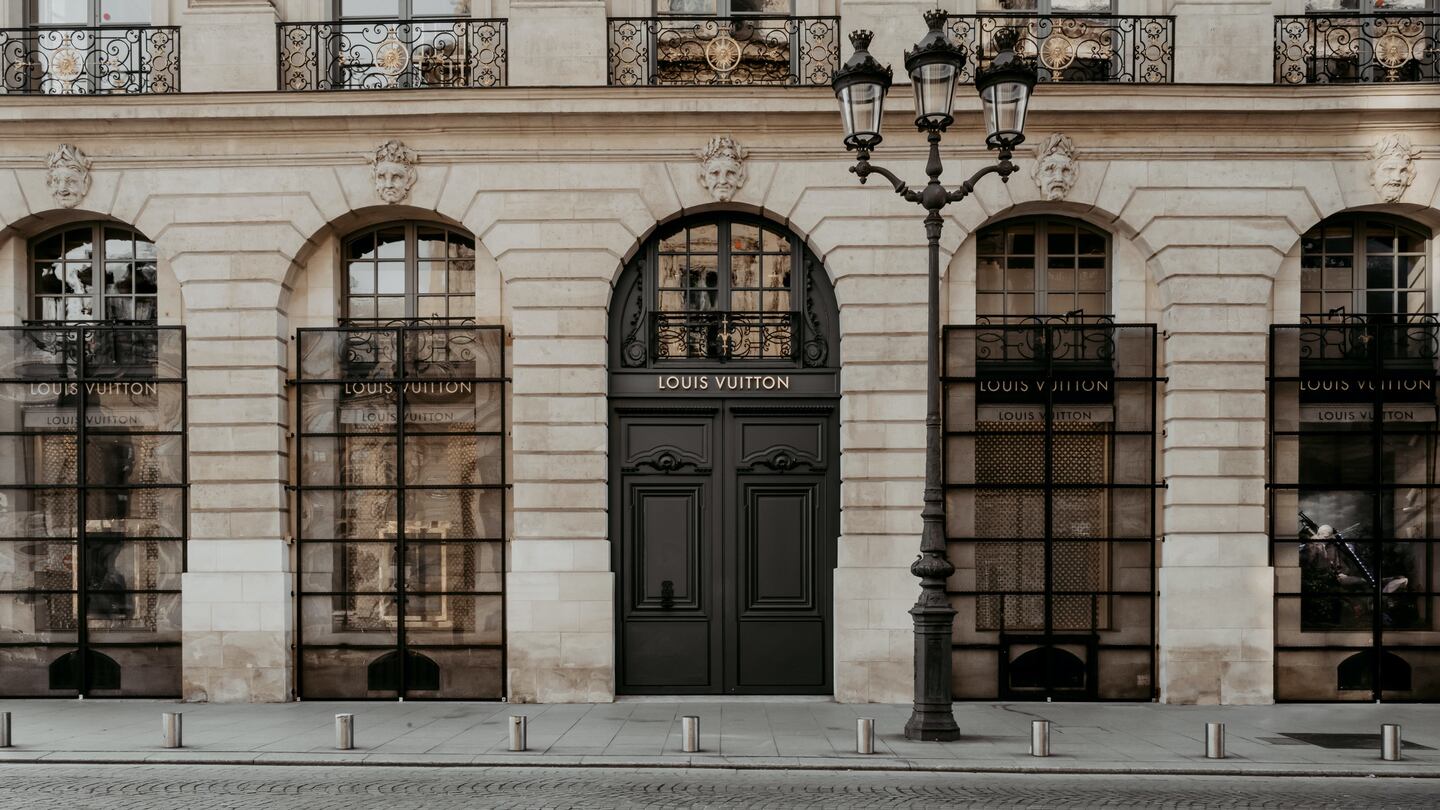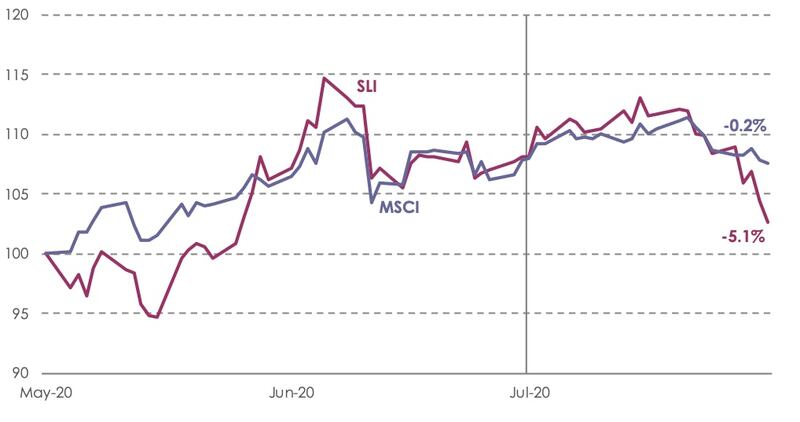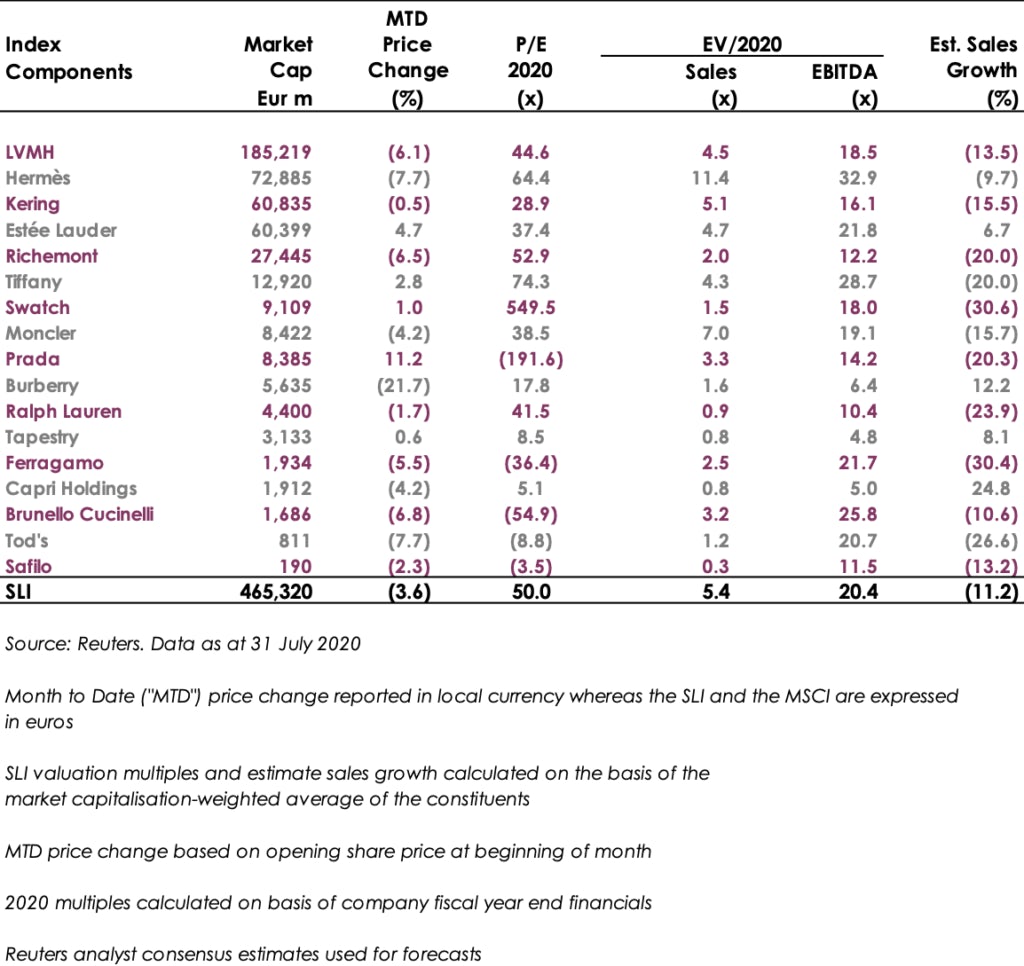
The Business of Fashion
Agenda-setting intelligence, analysis and advice for the global fashion community.

Agenda-setting intelligence, analysis and advice for the global fashion community.

LONDON, United Kingdom — Knowing full well that the second quarter of 2020 would bear the brunt of the Covid-19 crisis did not help. The markets still reacted badly to the spring results announcements this month. Safilo, LVMH, Kering, Hermès, Prada, Moncler, Ferragamo, Richemont, Burberry, Brunello Cucinelli and Swatch all posted double-digit sales declines in their latest results, with the median decline for the second quarter reaching 40 to 50 percent. Rubbing salt in the wound, Moncler, Swatch and Prada reported operating losses for the first half of the year.
Companies' reassurances that things were getting better seemingly fell on deaf ears, whether it was high double-digit growth in Mainland China or triple-digit growth in e-commerce. LVMH's finance director best summarised the situation in China by making clear that domestic shopping by Chinese consumers could not offset the near absence of purchases by Chinese tourists travelling abroad. This was coupled with the fact that, despite the lift, e-commerce still only accounts for a small share of business among most luxury players. For example, Kering's e-commerce sales grew by 72 percent in the second quarter but nevertheless only accounted for 18 percent of retail sales.
Burberry is cementing its pole position in digital innovation in the luxury industry having opened its first "social retail" store in Shenzhen in partnership with Tencent. The store was developed in collaboration with a smartphone widget on WeChat and aims to integrate gaming, social media, e-commerce and white-gloved customer services that can be accessed both at home and in the store. Other brands, including Bulgari, Gucci and Louis Vuitton have also developed a presence on WeChat, which reaches over 1 billion users and some have even introduced the concept of gaming into their physical stores, via claw machines and lucky gifts. Such an approach remains the preserve of Mainland China for the moment.
Corporate activity in July was relatively subdued; iconic French shoe brand Clergerie was sold to French Legacy Group, a holding company controlled by private equity fund Mirabaud Patrimoine Vivant.
ADVERTISEMENT
The Savigny Luxury Index (“SLI”) took a tumble this month, with the luxury sector enduring one of the worst quarters on record, according to Bain & Company. The SLI fell just over 5 percent versus a near-flat performance for the MSCI.
SLI versus MSCI

SLI Graph July 2020
Going Up
• Prada gained over 11 percent this month as investors overcame the bloodbath of its first half results to focus on the strong rebound experienced by the company in China and online.
• Estée Lauder’s long-established digital presence spread across nearly 50 markets combined with recent cost-saving measures and a renewed focus on China has helped the group keep abreast of the Covid-19 crisis. The beauty conglomerate’s share price ended July almost 5 percent up.
Going Down
• Burberry's shares took a nosedive this month on the back of an almost 50 percent drop in quarterly sales, coupled with plans to cut 500 jobs. The company also has to contend with the calamitous state of Brexit negotiations. The stock lost over one fifth of its value this month.
ADVERTISEMENT
• Hermès fell by almost 8 percent, reflecting the announcement of a first half operating margin of 21.5 percent, sharply down from reported margins closer to 35 percent in the past. Nevertheless, this month's share price decline still leaves the fabled luxury group trading at a high premium to the SLI average.
What to Watch
While many breathed sighs of relief as the lockdown in Europe was gradually eased, the US situation remained worrisome. Infection clusters have also started to reappear, a clear sign that the threat is still a long way from disappearing. Having counted the cost of a full lockdown on their economy, most countries will do everything in their power to manage any flare-ups of Covid-19 without going back to imposing universal lockdowns. But the risk is still there. Should this happen, the impact on consumer confidence and luxury sales could be truly devastating.
Sector Valuation

In 2020, like many companies, the $50 billion yoga apparel brand created a new department to improve internal diversity and inclusion, and to create a more equitable playing field for minorities. In interviews with BoF, 14 current and former employees said things only got worse.
For fashion’s private market investors, deal-making may provide less-than-ideal returns and raise questions about the long-term value creation opportunities across parts of the fashion industry, reports The State of Fashion 2024.
A blockbuster public listing should clear the way for other brands to try their luck. That, plus LVMH results and what else to watch for in the coming week.
L Catterton, the private-equity firm with close ties to LVMH and Bernard Arnault that’s preparing to take Birkenstock public, has become an investment giant in the consumer-goods space, with stakes in companies selling everything from fashion to pet food to tacos.